'No reason' why Mid Yorkshire can't be outstanding - departing hospital chief says
and live on Freeview channel 276
Martin Barkley is retiring in September after five years at the trust, which runs Pinderfields Hospital in Wakefield, as well as Pontefract and Dewsbury.
In an interview conducted last month, Mr Barkley reflected on his time in charge and the impact of the coronavirus pandemic on the NHS.
Advertisement
Hide AdAdvertisement
Hide AdHe candidly told how he briefly felt "helpless" and "like a failure" as supplies of PPE came dangerously close to expiring in April 2020.
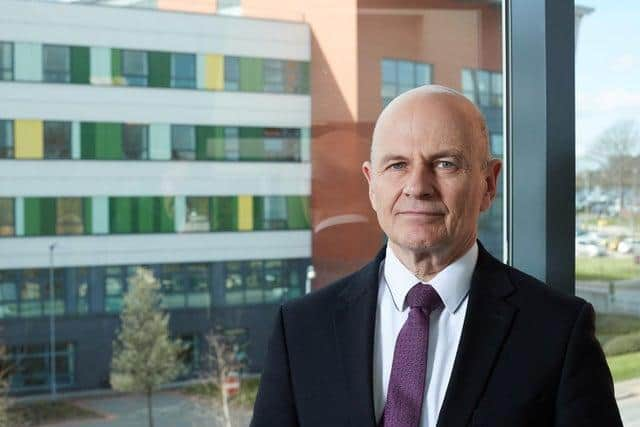

He also explained how he hurt for families unable to get an update on their stricken relatives' wellbeing in hospital, as staff shortages crippled the phone system before last Christmas.
Asked why he was calling time on his career, Mr Barkley said: "I have very mixed feelings because I love my job and I love being here at Mid Yorkshire.
"But I’m 67 in three weeks time and my last day here coincides with my 49th anniversary of joining the NHS.
Advertisement
Hide AdAdvertisement
Hide Ad"I haven’t had a gap year! So the time has arrived for me to do something that’s a bit less intense and be a bit more of a part in my family life."
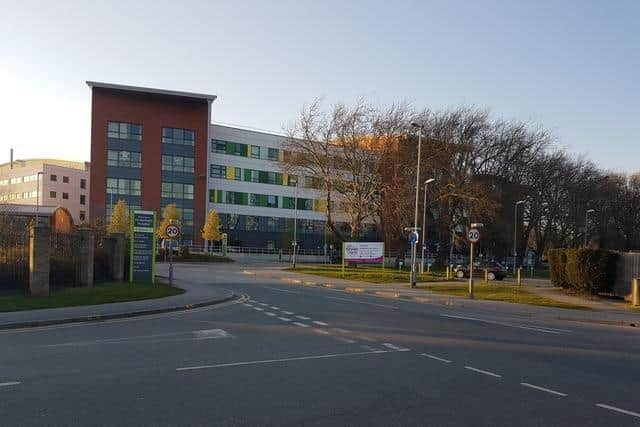

In 2019, Mr Barkley outlined his ambition for Mid Yorkshire to be rated 'outstanding' by the care regulator within three years.
In 2018 the trust had been graded 'requires improvement' by the Care Quality Commission (CQC), though it was noted that recent progress had been made in several areas. Three years on it remains its last inspection.
Despite hospital services being ravaged by the pandemic, Mr Barkley insisted that Mid Yorkshire can still achieve a rare and precious rating of 'outstanding'.
Advertisement
Hide AdAdvertisement
Hide AdHe said: "I genuinely work with an excellent team of directors, and they’re tasked with continuous improvement.
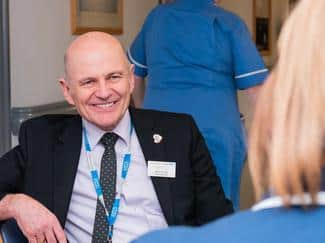

"Things have improved but there is much more potential to realise here.
"There’s no reason why this trust can’t be outstanding and shouldn’t be outstanding. The staff work so hard."
Mr Barkley said he hoped he'd helped to improve morale and life at the trust for its workforce.
Advertisement
Hide AdAdvertisement
Hide AdStaff surveys have indicated greater levels of job satisfaction than five years ago, with the issue having been made a long-term priority.
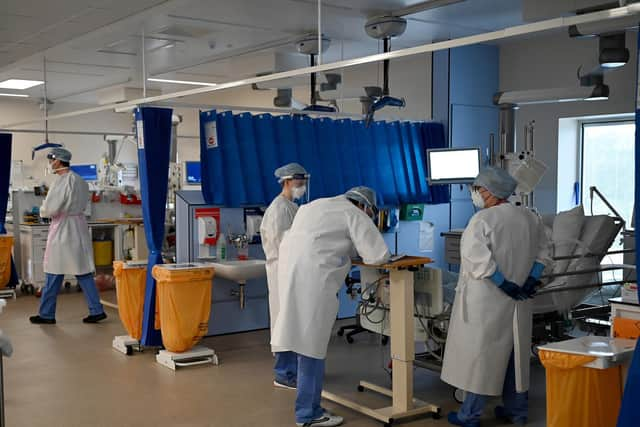

"Since I’ve announced my retirement, I’ve been genuinely overwhelmed by the messages I’ve received from so many staff," Mr Barkley said.
"I’d like to feel what I’ve contributed to is an improved culture, in terms of what it feels like to work here, to be appreciated and being treated with respect."
Asked how he had personally coped as a hospital chief during the darkest days of the pandemic, Mr Barkley said he'd felt "the weight of responsibility" and that dealing with Covid, "where there was no relevant experience to draw on", had been challenging.
Advertisement
Hide AdAdvertisement
Hide AdHe explained how maintaining sufficient numbers of protective equipment for staff during the pandemic's early weeks, amid a desperate nationwide shortage, had been troublesome.
As a result, many nurses were given coveralls by the trust, which were disparagingly likened to cagoules by unions.
Mr Barkley recalled: "Certainly in wave one my biggest anxiety was maintaining sufficient supplies of the right PPE to keep our staff safe.
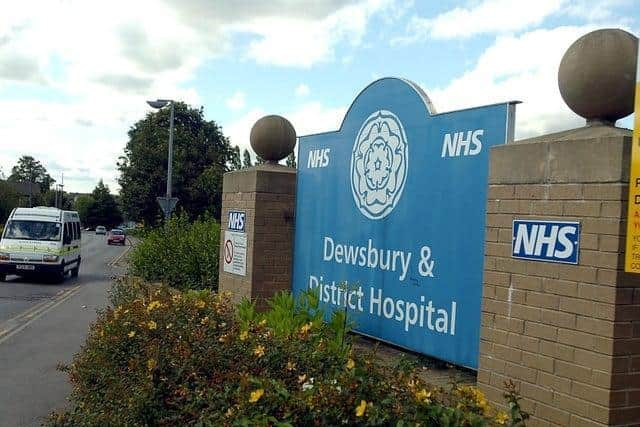

"We came close to not being able to do that, hence the story about the cagoules, which attracted a degree of publicity.
Advertisement
Hide AdAdvertisement
Hide Ad"But nevertheless I think we were successful in keeping people safe when they were working in high risk areas. "
Mr Barkley added that it had been around that time, "when I was seriously impacted by concern."
He admitted the PPE issue had "Made me feel like a failure and helpless as to what you can do in that situation."
He'd explained that he'd coped with the pressure by taking counsel from senior colleagues and going into "problem-solving mode".
Advertisement
Hide AdAdvertisement
Hide AdHe said: "It doesn’t stop bad things from happening but at least I know I’ve done everything in my power and ability to prevent those bad things from happening.
"That’s how I try to keep things in perspective."
Hospitals faced new challenges during the second lockdown, as they were forced to maintain non-Covid services to a greater extent than the first lockdown.
Despite that, infections rose way beyond their spring peak and Covid absences among staff were much higher.
Mr Barkley said: "It was difficult to keep relatives informed in the way we’d have liked to because we had so few staff in comparison with wave one.
Advertisement
Hide AdAdvertisement
Hide Ad"Post-Christmas when it all started going up again quite significantly it was the same issue really that caused a lot of concern, about the communications with relatives.
"Hardly any were visiting because of the restrictions in place and the telephones were constantly engaged.
"Even though it’s engaged, from the outside it sounds like the phone was ringing and no-one was answering the phone.
"The anxiety and frustration so many relatives must have felt, I really feel for them and I understand it."
Advertisement
Hide AdAdvertisement
Hide AdMr Barkley said the NHS is both "radically different and in many ways exactly the same" as the organisation he first became a part of nearly half a century ago.
He said that while the multiple NHS restructures had improved standards and changed the way healthcare is delivered, its founding principles must be kept sacred.
"GPs were the bedrock of the NHS in 1972, as they are today," he said.
"A&E departments looked after the sickest people, as they do today.
"The fundamentals are still the same."
"I've been through every NHS reorganisation ever.
Advertisement
Hide AdAdvertisement
Hide Ad"As important as reorganisations are for bureaucrats like me, where we can’t take our eye off the ball is making sure our workforce feel valued and supported and doing everything we can to ensure patients get access to quality treatment in a timely way.
"Those fundamentals are there and we have to keep focused on them because they’re the things that make a difference to real people.
"We take our eye off that ball at our peril."
Mr Barkley's replacement will be the current chief of the Cardiff and Vale University Health Board, Len Richards.
Mr Richards will take up his new post in October.
Local Democracy Reporting Service